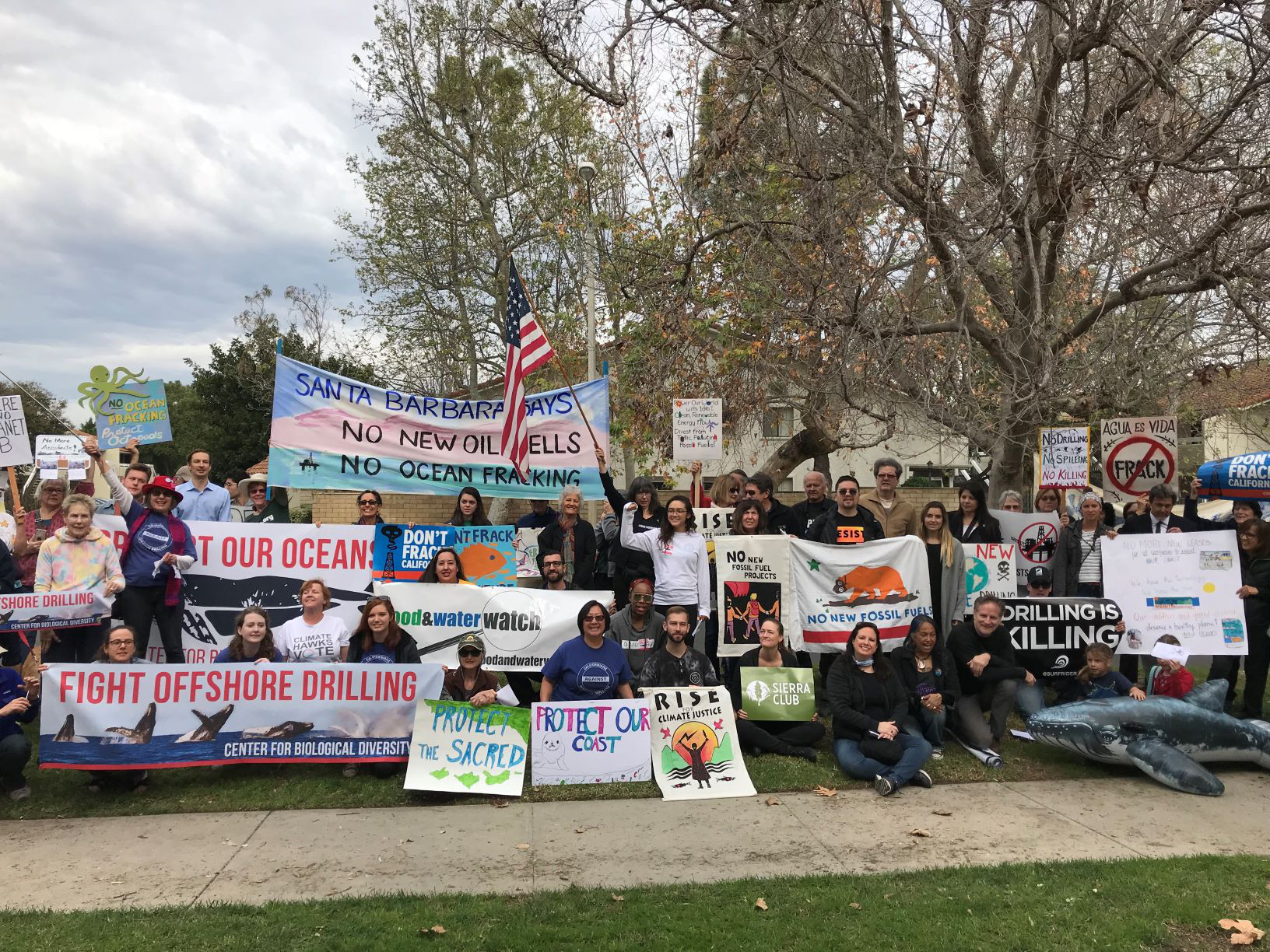What Plains Pipeline Isn’t Telling You
A New Pipeline for Three Offshore Platforms Will Extend the Life of Fossil Fuel Production

Plains All American Pipeline picked an interesting week — the 50th anniversary of the 1969 oil spill — to come to town and promote its new pipeline project to transport offshore oil. The company must have missed the packed Arlington event on Sunday organized by Community Environmental Council, Environmental Defense Center, and UCSB’s Environmental Studies department, with music, elected officials at all levels, and the national leaders of Sierra Club and Greenpeace explaining that we can’t build new fossil fuel infrastructure and also avoid catastrophic climate change.
Plains certainly missed the protest on Monday at federal offices in Camarillo against Trump’s proposed offshore oil lease plan, which faces unprecedented opposition in California. Fully 69 percent of voters now oppose offshore oil, including majorities of Republicans. Maybe they haven’t noticed just how unpopular offshore oil has gotten lately with cities up and down the coast, including Santa Barbara, Goleta, and Carpinteria, passing resolutions opposing offshore oil and calling for a phaseout of existing offshore oil production. Maybe they didn’t notice the big turnout Tuesday at a showing of the documentary Broke at the S.B. Library about the 2015 oil spill, which shut down our beaches, devastated our tourist and fishing economy, and killed hundreds of birds and marine mammals and for which Plains Pipeline was found criminally liable.
The situation is this. Exxon seeks to restart three offshore oil platforms on the Gaviota Coast that have been shut down since the 2015 spill and transport the oil up the 101 via 70 tanker trucks a day for years until a new pipeline can be built. Plains has applied to build that new 123-mile pipeline as an alternative to the one that burst. What they aren’t telling people is that that requires bulldozing a 100-foot corridor along the entire route, denuding hundreds of acres of land, crossing three rivers and three counties, crossing over the San Andreas Fault, and enabling Exxon’s offshore production for decades to come — beyond the 2045 date by which California hopes to be carbon neutral.
Plains’ message to Santa Barbara is a threat. “Exxon has the right to turn those platforms back on, we have the right to repair the existing lines, and we’ve made the decision that is in the best interest of the community where to place it,” Steve Grieg, director of government affairs for Plains Pipeline, was quoted as saying in a news report. They know what’s good for us, and if we don’t let them build a new pipeline, they’ll use the old, leaky one instead. Nice coastline you got there, Santa Barbara; would be a shame if something happened to it. Better let us have a do-over or else.
We have some rights too. We have the right to deny Exxon’s trucking scheme, given that trucking is the least safe way to transport oil. A tanker accident shut down the 101 in Goleta as people were trying to evacuate during the Thomas Fire. On the Gaviota Coast, there would be no way around such an accident. Tankers containing hazardous materials are prohibited along many waterways, tunnels, and bridges. We have the right to deny Plains’ new pipeline. Maybe they could repair their existing corroded pipeline as they threaten to do, but we have the right to ensure it meets stringent state requirements now that they can no longer get away with the looser federal oversight that they sued our county to get in the past. At least the existing pipeline would avoid the significant impacts of building a new pipeline and would certainly have a shorter lifespan than a brand-new pipeline. We have the right not to approve any new infrastructure to support offshore oil. We have a right, after the devastation of fires and mudslides linked to climate change, to speak our truth to power. Exxon, which has known about climate change for decades and chose to mislead and undermine action, and Plains Pipeline, with its felony negligence, don’t deserve a second chance.
California is kicking its fossil fuel addiction. In 1969 getting off of oil was a dream. Now it is a reality and an imperative. Californians used four million gallons of gas less per day in 2017 than we did in 2006. The state is on track to get five million electric cars on the road, 100 percent electric buses for public transport, and 100 percent renewable energy. Seven offshore oil platforms are already being removed soon, and the more removed at one time, the more cost-effective it is. Exxon should take the opportunity to get out now while the getting is good.
Katie Davis chairs the Santa Barbara chapter of the Sierra Club.
Correction: This piece was corrected on February 12, 2019, as UCSB’s Environmental Studies department, not its Bren School, sponsored the Arlington event.



